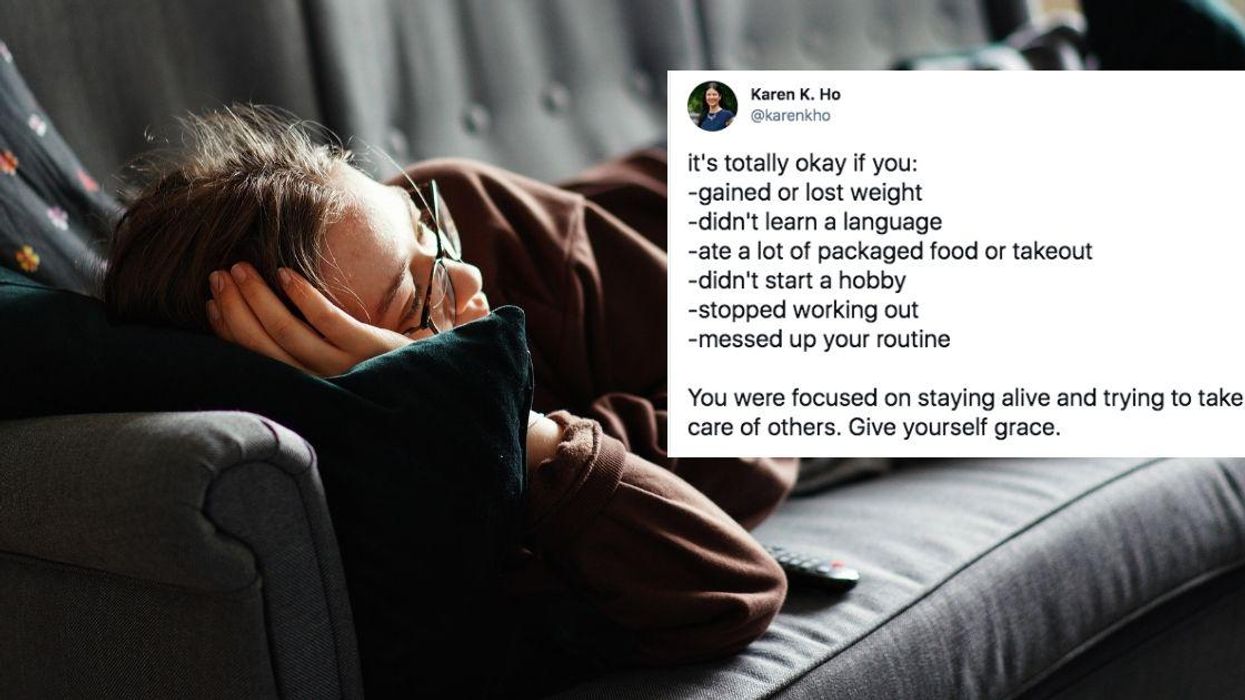
Just over a year into the coronavirus pandemic, we’re finally seeing a light at the end of our socially distanced tunnel. We still have a ways to go, but with millions of vaccines being doled out daily, we’re well on our way toward somewhat normal life again. Hallelujah.
As we head toward that light, it’s natural to look back over our shoulders at the past year to see what we’re leaving behind. There’s the “good riddance” stuff of course—the mass deaths, the missing loved ones, the closed-up businesses, the economic, social and political strife—which no one is going to miss.
But there’s personal stuff, too. As we reflect on how we coped, how we spent our time, what we did and didn’t do this past year, we’re thinking about what we’ll be bringing out of the tunnel with us.
And some of us are finding that comes with a decent dose of regret. Maybe a little guilt. Some disappointment as we go down the coulda-woulda-shoulda road.
When social distancing and stay-at-home orders were implemented, we were motivated. The reason we were doing it was bleak, but those of us not working on the front lines looked to the silver lining of having extra time. In some ways, that time felt like a gift. We were forced to slow down. We organized all the closets in our houses. We planted victory gardens. We picked up old hobbies or started new ones. We volunteered to sew masks. We played games and did puzzles with our families.
What we didn’t know was that motivation couldn’t last through an entire pandemic. And with lost motivation came the self-talk: “What’s wrong with me?” and “I should be doing XYZ,” and “I always wanted more time to [fill in the blank]. Now I have it and I’m not using it.”
We look back at how we used our time and make hindsight wishes. We wish we had read the stack of books we’d wanted to read instead of binge-watching so many Netflix shows. We wish we’d worked out like we said we were going to instead of lounging around in our pajamas. We wish we’d cooked the healthy, from-scratch meals we’d pinned to our recipe board instead of eating all the junk food. We wish we’d used that foreign language learning app instead of doomscrolling on social media.
Some of us are adding parental guilt to the mix for the copious amounts of screen time our children have had. Others of us feel guilty because we were able to work from home and our families stayed healthy, so what do we have to complain about really?
It’s easy to kick ourselves over any and all of these things. It’s easy in hindsight to think we should have been able to do more than we did simply because we had time.
That’s why It’s vital to remind ourselves that this past year was not a vacation. It’s not like we were just gifted extra hours in our day that we then squandered because we were lazy.
This year life was turned upside down and traumatic on a communal level, if not on a personal one. So many of us lost people, but even if we didn’t, we bore witness to the single largest mass death event of our lifetimes. We worried about the people around us as well as ourselves as we survived a global pandemic. That alone is huge. But that wasn’t even all of it.
We also dealt with the economic fallout of measures implemented to save lives and frustrating conspiracy theories about all of it. We also grappled with centuries of unaddressed oppression during a historic movement for racial justice. We also went through an incredibly turbulent election season that climaxed in a violent attack on our Capitol.
And we did all of that without our normal social supports, without our usual routines and rhythms, and without any precedent for how to cope with and manage all of this.
it’s totally okay if you:
-gained or lost weight
-didn’t learn a language
-ate a lot of packaged food or takeout
-… https://t.co/PT1EhLGXL2— Karen K. Ho (@Karen K. Ho)1617671679.0
Seriously, we need to give ourselves an enormous amount of grace and let go of our hindsight regrets over some perceived lack of productivity or creativity or whateverivity. We’ve been in survival mode by necessity this past year.
As trauma psychologist Alaa Hijazi wrote earlier in the pandemic, when someone suggested that not using this time productively was some kind of moral failure:
“We are going through a collective trauma, that is bringing up profound grief, loss, panic over livelihoods, panic over loss of lives of loved ones. People’s nervous systems are barely coping with the sense of threat and vigilance for safety, or alternating with feeling numb and frozen and shutting down in response to it all.”
If you managed to thrive in some area or another, great. If you didn’t—if all you did was make it through and care for yourself and your loved ones—more power to you.
Surviving this past year is an accomplishment, and it’s enough. Anything above and beyond that is gravy.
